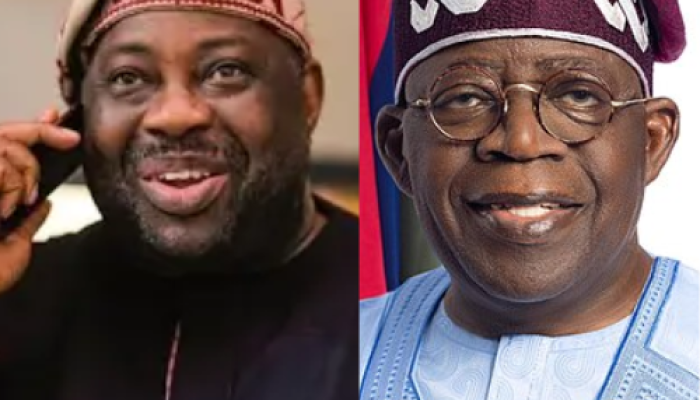In a fervent plea echoing the voice of the common Nigerian, former presidential aspirant Dele Momodu has publicly accused President Bola Tinubu of being the architect behind the current hardships faced by millions across the nation. His scathing critique, delivered via an open letter on the social media platform X, has ignited discussions and prompted nationwide protests, urging Tinubu to reconsider his approach to governance.
The Crux of Momodu’s Accusations
Momodu’s letter paints a bleak picture of Nigeria’s socio-economic landscape, stating, “Unfortunately, things have not been easy for Nigerians (except members of the privilegentsia) since you realized your lifelong ambition. And let me be frank Sir. You caused it all. You did not realize that a country is much more complicated than a state.”
His concerns are rooted in the escalating difficulties faced by the average Nigerian, a stark contrast to the comfort enjoyed by a privileged few. Momodu’s disappointment is evident as he criticizes Tinubu for failing to recognize the complexities of national governance. He emphasizes that the President’s strategies have seemingly exacerbated the situation rather than alleviating it.
The Democratic Dilemma
One of the most striking elements of Momodu’s letter is his critique of Tinubu’s stance on democratic rights. Reflecting on his own experiences under military rule, Momodu laments the President’s recent statements suggesting that Nigerians will not be allowed to congregate and demonstrate. “I’m sad and embarrassed that a fighter for Democracy is now saying Nigerians will not be allowed to congregate and demonstrate on the streets, something you and I enjoyed during the military regimes, at home and abroad,” Momodu writes.
Momodu, who has had extensive involvement in peace initiatives across Sierra Leone, Liberia, and The Gambia, stresses his opposition to anarchy while advocating for the protection of democratic rights. He reassures that any potential threats to peace can be managed without resorting to authoritarian measures.
A Call for Guidance and Reformation
In his plea to Tinubu, Momodu suggests a shift in strategy, urging the President to reconnect with civil liberties advocates. He emphasizes the need to evaluate the performance and readiness of Nigeria’s security agencies without succumbing to the pressures of hardline advisors. “Please Sir, go back to your original friends in civil liberties and seek their assistance. Then, use this opportunity to test the strength of your security architecture and the combat readiness of our security agencies,” Momodu advises.
Momodu warns against the counsel of “hawks” within Tinubu’s team, who, he argues, have little to lose and are primarily concerned with maintaining their privileges. “Ignore the advice of the hawks in your team. They have nothing to lose since they are mostly beneficiaries of what others died for,” he states bluntly.
The Nationwide Protests: A Response to Desperation
Momodu’s comments have not gone unnoticed. Across Nigeria, citizens have taken to the streets in a series of protests, chanting slogans demanding accountability and better governance. The movement, driven by widespread discontent, underscores the urgency for Tinubu to address the growing crisis and reaffirm his commitment to democratic principles.
Protesters, many of whom are struggling with inflation, unemployment, and dwindling public services, are calling for Tinubu to act decisively. They seek tangible solutions to the economic woes plaguing the nation and a restoration of the democratic freedoms that have been threatened.
The Path Forward: A Call for Dialogue and Reconciliation
As the protests gain momentum, the need for constructive dialogue becomes increasingly apparent. Momodu’s call for Tinubu to engage with civil liberties advocates and re-examine the nation’s security strategies is a critical step towards healing the rift. By fostering an environment of openness and inclusivity, Tinubu can begin to rebuild trust with the Nigerian populace.
The path to stability and progress for Nigeria is fraught with challenges, but with the right leadership and a commitment to democratic values, there is hope for a brighter future. As Dele Momodu’s letter resonates with the masses, it serves as a poignant reminder that the true strength of any democracy lies in its ability to listen to and address the grievances of its people.
Conclusion
Dele Momodu’s candid letter to President Bola Tinubu has not only stirred a nationwide debate but has also reignited the spirit of activism among Nigerians. As the country stands at a crossroads, the call for responsible governance, respect for democratic rights, and socio-economic reforms has never been more urgent. Whether this will lead to meaningful change or further polarization remains to be seen, but one thing is clear: the voice of the Nigerian people is louder and clearer than ever.
Stay tuned for more updates on this developing story and join the conversation. Your voice matters in shaping the future of Nigeria!




